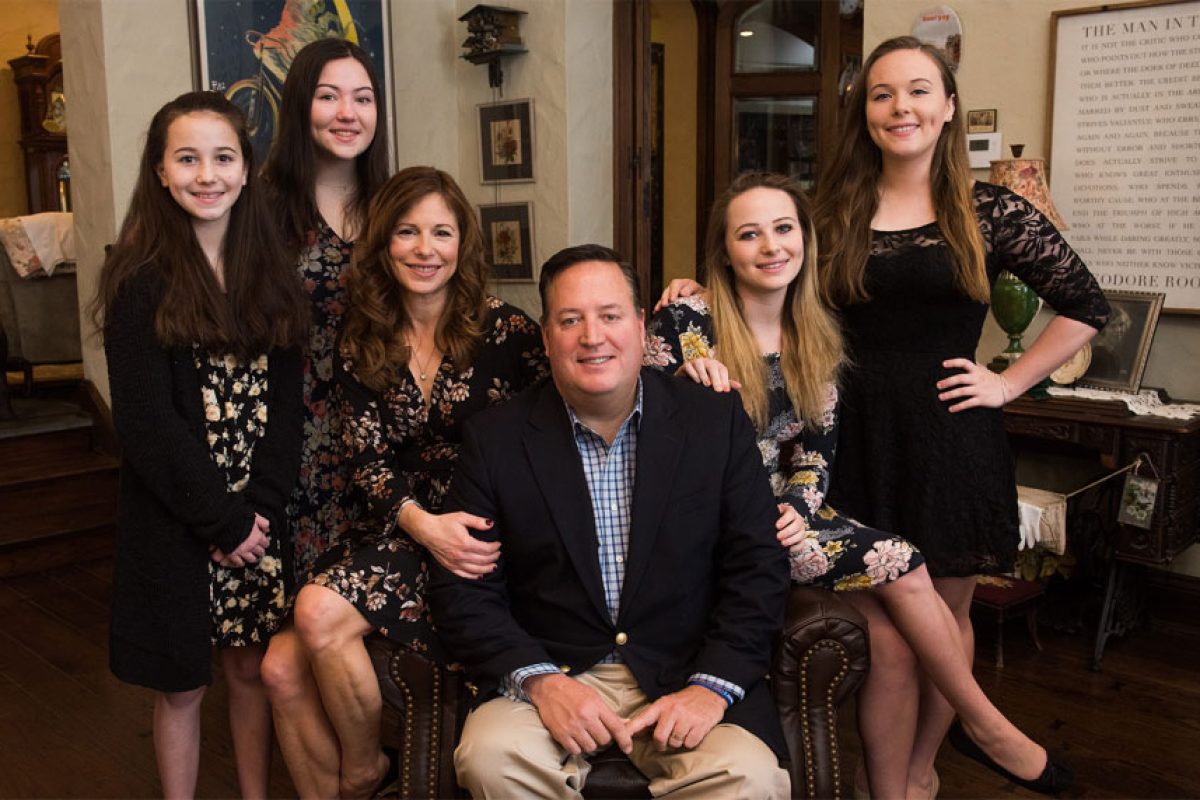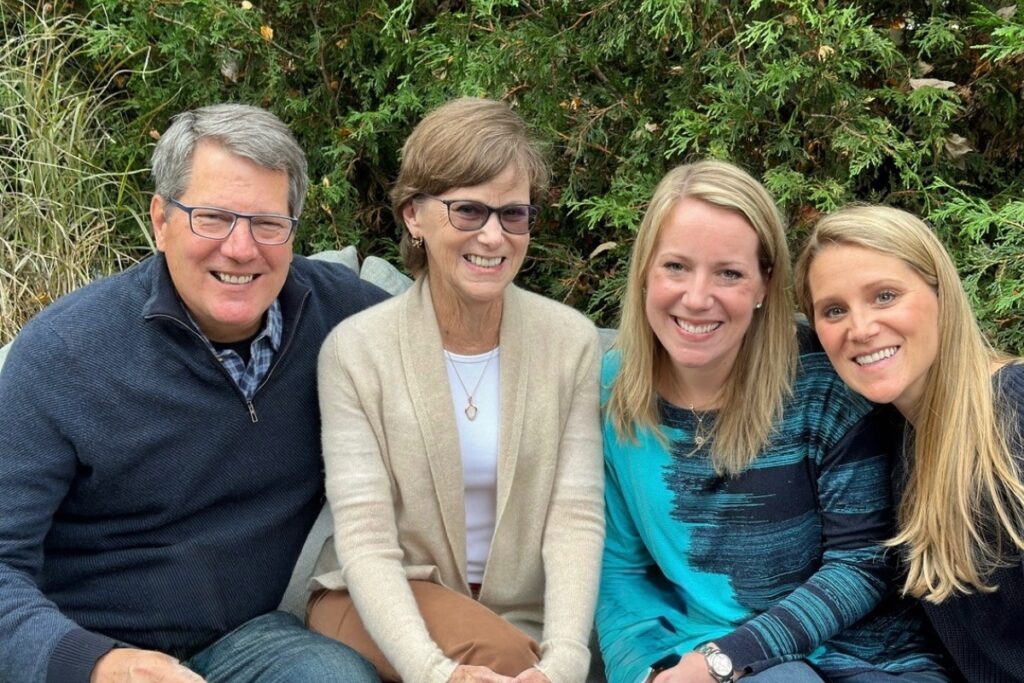Region’s first pediatric lupus clinic opens at Comer Children’s Hospital
Maddie Handley, of Park Ridge, Illinois, was living the normal life of an active, happy 12-year-old, until she started to experience muscle tightness that made it difficult to walk and noticed a butterfly-shaped rash across her face. Her family watched as her lively spark and sense of humor faded. She subsequently embarked on numerous doctor visits with her parents to identify the cause of her symptoms, all the while enduring intense pain.
But it wasn’t until Maddie ended up in the emergency room at the University of Chicago Medicine Comer Children’s Hospital that she was diagnosed with lupus, a chronic autoimmune disease that occurs when the body’s immune system attacks and destroys healthy cells, tissues, or organs, causing widespread inflammation and tissue damage.
Lupus is one of the least understood major diseases in the world, affecting more than 1.5 million Americans and more than 5 million people globally, 90 percent of whom are women between the ages of 15 to 44.The disease also disproportionately affects African American women, who are three times more likely to get lupus than white women. Lupus is also more common among Hispanic, Asian, Native American, and Alaskan Native women.
Maddie and her family are grateful to have found a diagnosis for Maddie’s pain. Known as “the great imitator,” lupus is often mistaken for other diseases due to its many symptoms, which differ from person to person and can range from muscle and joint pain to fever, rashes, and extreme fatigue to cognitive issues.
At Comer Children’s, Maddie received care from Melissa Tesher, MD, a pediatric rheumatologist with expertise in lupus.
When Dr. Tesher shared her vision to create the region’s first pediatric lupus clinic dedicated to providing personalized care for young adults with lupus, Maddie’s family and her father’s company, Lakeshore Recycling Systems, knew they needed to support it. In August 2018, they committed $180,000 to help start the clinic.
Providing a community of support
The lupus clinic at Comer Children’s, which opened in January 2019, is dedicated to helping adolescents like Maddie manage the physical and psychosocial challenges of living with lupus.
While no cure exists for lupus, medications and lifestyle changes can help control the symptoms. Because lupus can negatively affect the heart, blood vessels, kidneys, lungs, and the nervous system, living with the disease often requires multiple visits to different specialists and a complex medication regimen. For parents, this may mean needing to take off work for many appointments.
“Lupus is very complicated,” Dr. Tesher said. “It is stressful, and there are a lot of unknowns.”
The clinic seeks to help patients and families overcome these challenges by providing access to specialized care in one place.
“Dr. Tesher saw a vision for the future and a hub for all the subspecialties,” said Alan Handley, Maddie’s father.
The clinic includes pediatric rheumatologists Cuoghi Edens, MD, Linda Wagner-Weiner, MD, MS, and Dr. Tesher, as well as a nurse educator, child life specialists, a social worker, a research coordinator, and a pharmacist who is available to answer patients’ questions about their medications and offer strategies to help them follow their treatment plan.
To address patients’ psychosocial needs, the clinic offers a support group for all patients, which provides a space for them to discuss the challenges of living with lupus, including in their schools, families, and social lives.
“Being an adolescent and having lupus is really hard for a lot of reasons,” Dr. Tesher said. “Some of the medications change your appearance, which is stressful for anyone, but especially teenagers. A lot of them need to take prednisone, a type of steroid, which causes weight gain, mood swings, and acne.”
Because most people are not aware of lupus or its symptoms, patients can also face challenges at school, where administrators may not be familiar with the disease or understand its gravity.
“Most people have never heard of lupus and don’t have any idea what it is,” Dr. Tesher said. “It is also an invisible disease. Patients might not look very ill, even if they have been recently hospitalized.”
Further complicating matters, the complex care required to treat lupus can be expensive, and not all costs are covered by insurance. To help make the clinic more accessible to all families, free parking and Ventra cards are also provided.
“Comer Children’s is located in a community that has a lot of lupus patients and a lot of need,” Dr. Tesher said.
All patients are given the opportunity to participate instudies to assess the effectiveness of the clinic’s model. Although a lot of research about lupus focuses on quality of care, not much is focused on the psychosocial needs of the patients.
“The lupus clinic care model looks beyond the standard medical management, and treats the whole person. Teens with lupus not only struggle with complex treatment plans, but also need initiatives like the support group that address their social and mental health needs,” said Dr. Tesher.
Spreading lupus awareness
Since his daughter’s diagnosis, Alan Handley, chief executive officer of Lakeshore Recycling Systems, the largest private recycling and waste management company in Illinois and Southern Wisconsin, has motivated almost 900 employees to participate in fundraising efforts and events to raise money for lupus-related causes. In 2018, they kick-started their fundraising efforts for the lupus clinic at Comer Children’s. In addition, they’ve raised funds for the Lupus Society of Illinois, a nonprofit organization that promotes lupus awareness and research, and provides resources for the lupus community.
“Lupus is a cause close to our hearts,” said Meaghan Johnson, Lakeshore’s director of marketing. “It is important to spread awareness and give a voice to those affected.”
Thanks to thecare she received at Comer Children’s, Maddie’s lively spirit and sense of humor are back.
“Maddie is amazing,” said Dr. Tesher. “She asks me questions I have never heard before like, ‘Is this medication safe to go scuba diving on?'”
Now 16, she and her family are raising awareness about lupus and motivating others to recognize the need for supporting those affected by the disease.
Over the past couple of years, the family, along with Lakeshore employees, has participated in the Lupus Society’s Chicago Lupus Walk. Maddie also created a video sharing her story to encourage others to fundraise. For her efforts, she was named the Chicago Lupus Walk Ambassador by the Lupus Society of Illinois in 2017.
By raising awareness and supporting the clinic at Comer Children’s, the Handley family and Lakeshore employees hope to prevent young women like Maddie from suffering in silence and give them a community of support.
Today, Maddie is a sophomore at Maine South High School in Park Ridge and already knows what she wants to be when she grows up: a pediatric endocrinologist.
“My personal experience living with lupus makes me want to help other women like me get the best care possible so that they, too, can go on living and enjoying life,” said Maddie.
For Maddie and her family, supporting other young adults living with lupus has become a life mission.
“Comer Children’s changed our lives,” Alan said.




